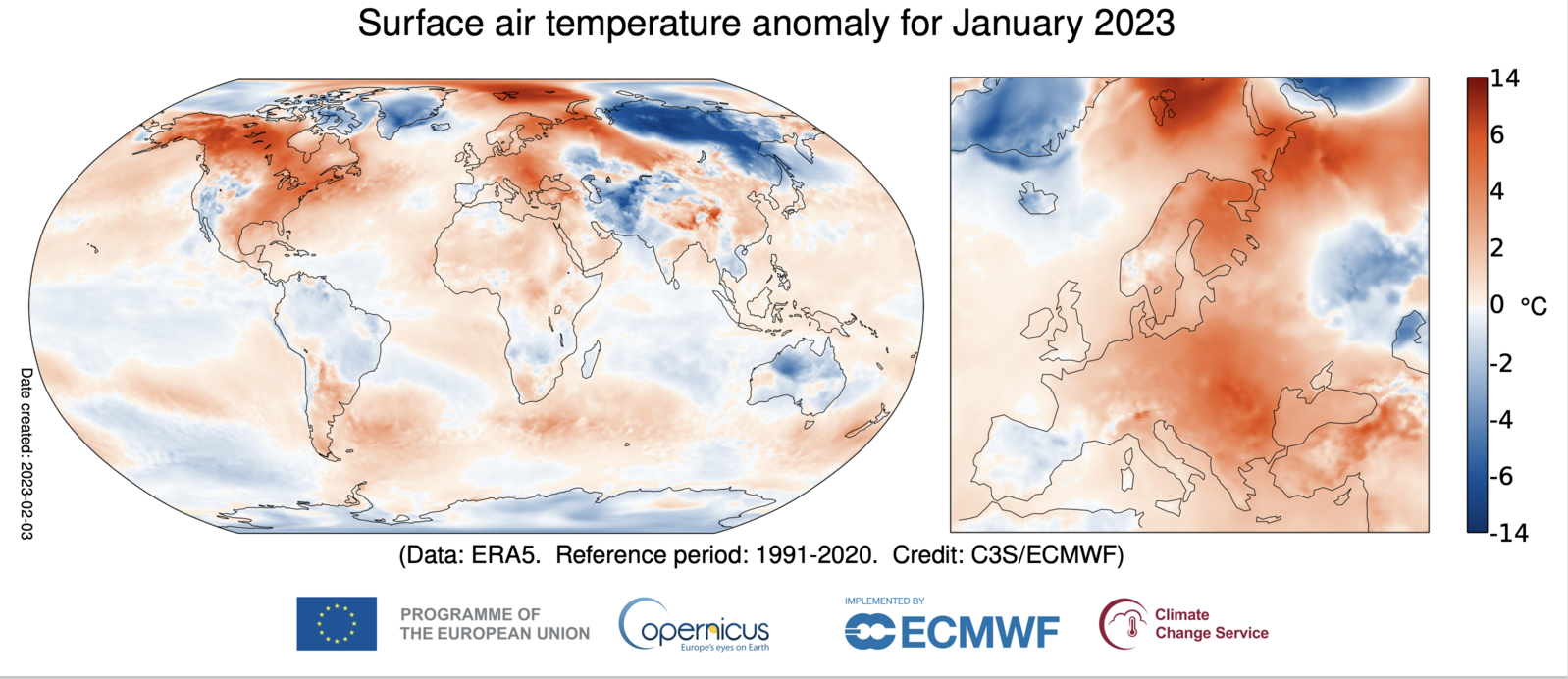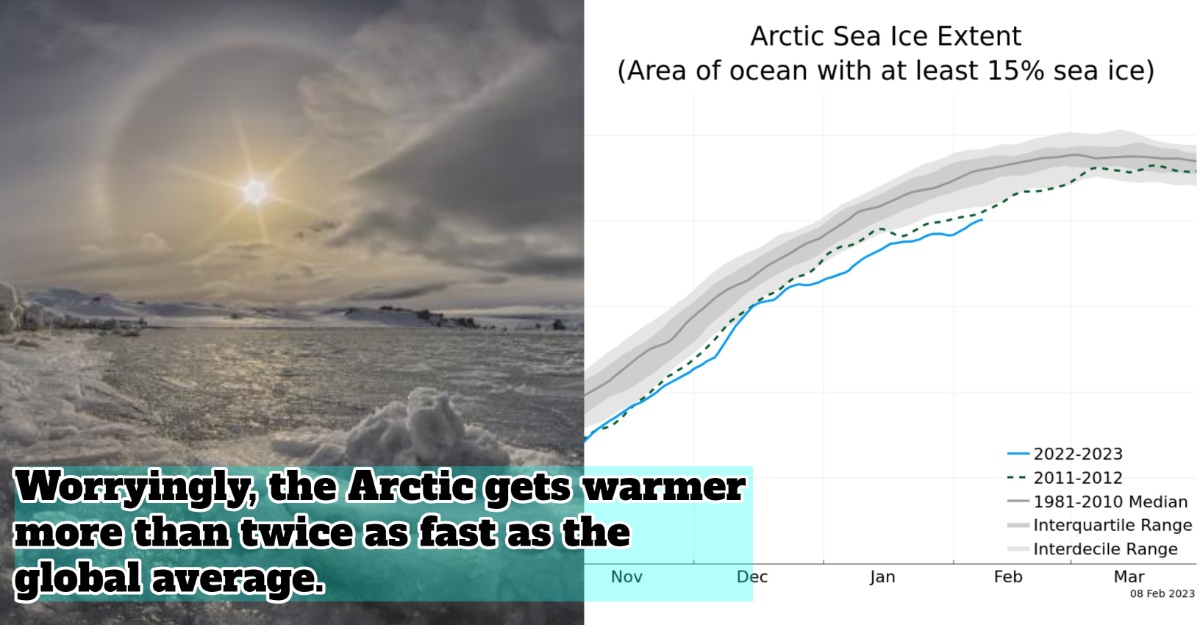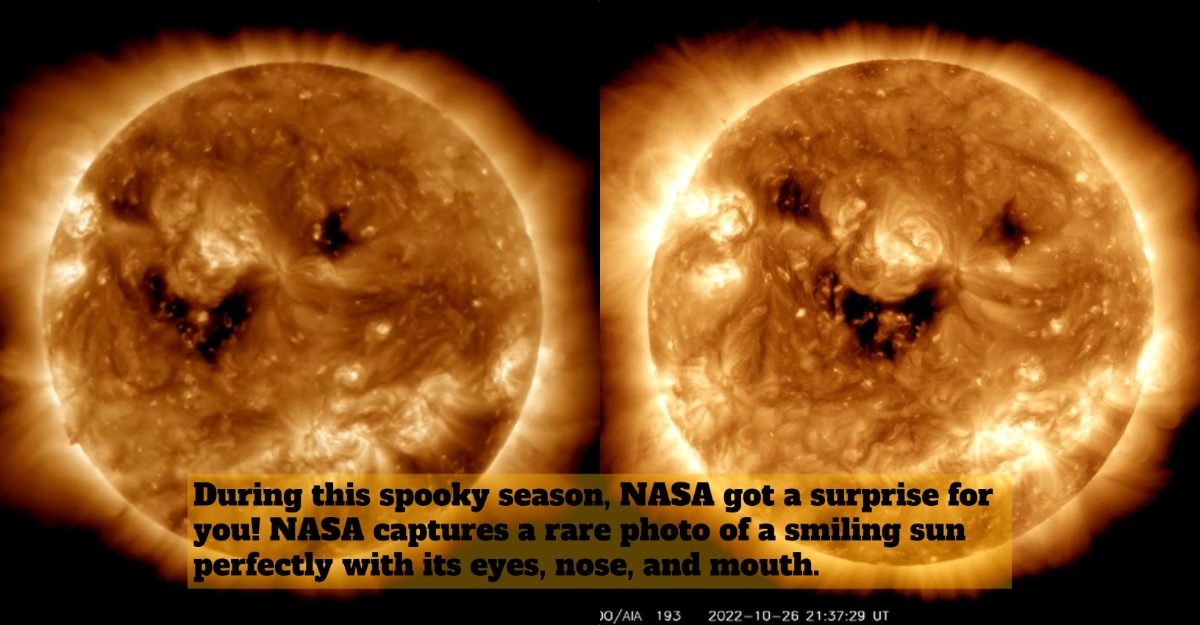NASA defines sea ice extent as the integral sum of the areas of all grid cells with at least 15% ice concentration. Moreover, sea ice area is the integral sum of the product of ice concentration and the area of all grid cells with at least 15% ice concentration.
Surprisingly, it was at its lowest record in January: could it be because of global warming or the world’s rising temperature? According to new reports, the combined climate indicators of the Arctic and Antarctic were the lowest in the first month of 2023.
US National Snow and Ice Data Center (NSIDC) said, “Combined, the two hemispheres set a record low for total global sea ice extent, yet this does not signify a trend necessarily and may be caused by weather-related variability.
What are the factors of low sea ice extent?
One of the climate indicators is the sea ice extent used by WMO.
Next, other indicators include temperature. In the past eight years, it had shown its warmest on record. However, it became the seventh warmest record in January, Copernicus Climate.
Worryingly, the Arctic gets warmer more than twice as fast as the global average. Thus, the Arctic sea ice has retreated over the 44-year satellite record. Since 1979, January has lost 1.80 million square kilometres (730,000 square miles), based on the linear trend. It’s around two sizes of Germany.

Usually, Arctic sea ice reaches its annual maximum extent in late February or early March. It happens when Antarctic sea ice reaches its minimum extent.
At this time, every year, summer affects the sea ice around Antarctica. However, this year promises a change of situation. West Antarctica, especially has become warmer than normal. Combined with strong winds and large waves, it created huge ice-free areas in the area from the Weddell Sea and west towards the Ross Sea via the Antarctic Peninsula.
Will it affect the Earth in the long run?
Gorm Dybkjær, a sea ice researcher at the Danish National Centre for Climate Research (Danish Meteorological Institute), said there are many factors to consider.
He explained, “It’s too early to conclude whether the sea ice continues to shrink in Antarctica or whether there are just long-term natural fluctuations in the weather.”
A stronger statistical basis is necessary before arriving at solid conclusions. Assessment is carried out to investigate if climate change causes this phenomenon.
Sources: World Meteorological Organization, NASA Earth Sciences








